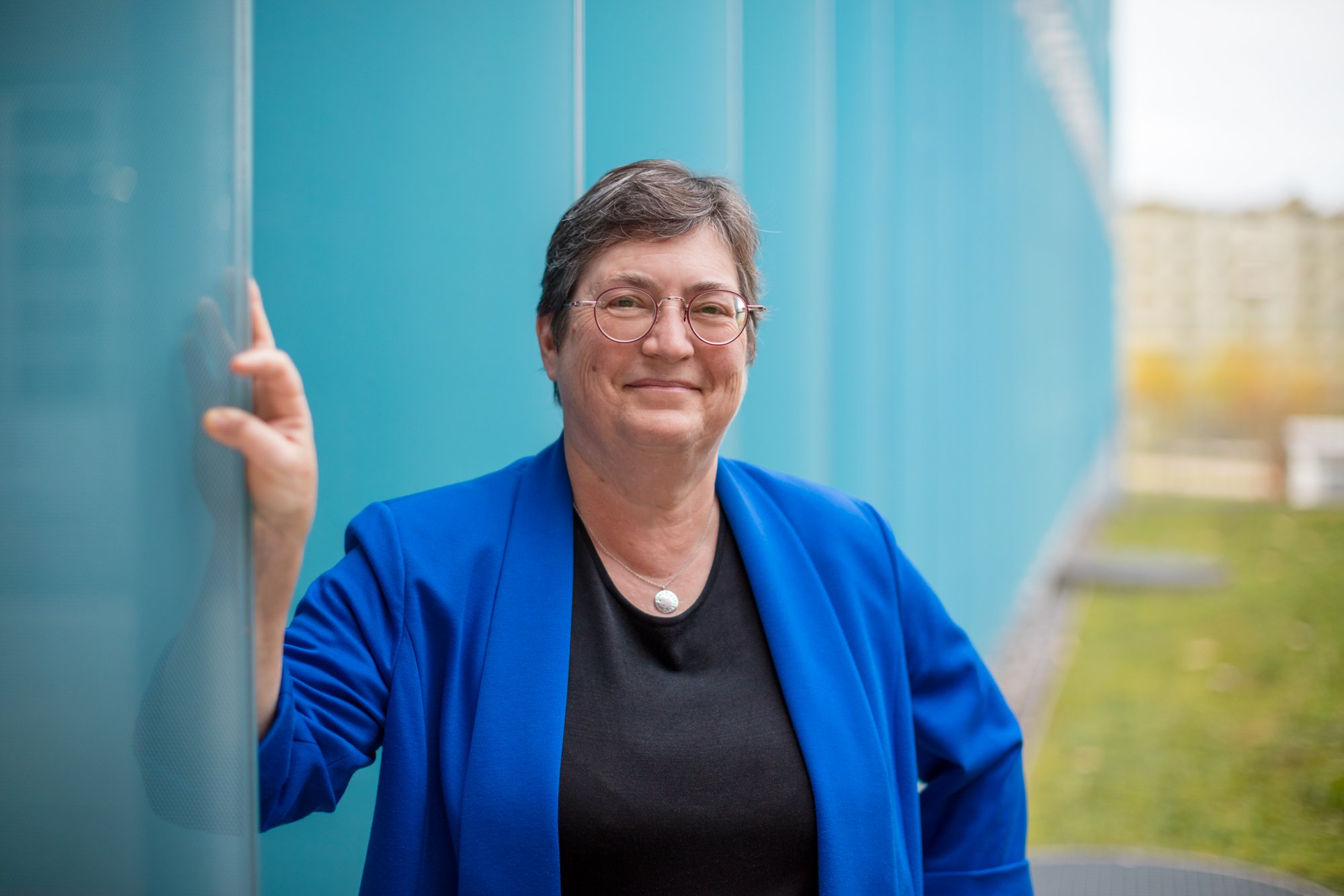“Sharing my good fortune”
Professor Janet Hering studied Oceanography at the Massachusetts Institute of Technology. After graduating she spent three years as a postdoc at Eawag and then held positions at the California Institute of Technology and the University of California. In 2007, she became Director of Eawag.
© Eawag / Alessandro Della Bella
Janet Hering, pioneer in aquatic science, former Director of Eawag and philanthropist talks about the driving forces behind her advocacy for women in academic leadership positions and sheds light on the impact of the Otto Jaag Water Protection Prize in encouraging young researchers to contribute to water protection.
What drives your passion for environmental issues?
JANET HERING – Growing up in the urban bustle of New York City and experiencing the contrast to rural Upstate New York, where I spent my summers, shaped my awareness of environmental pollution and its impacts.
What convinced you to become Director of Eawag, the aquatic research institute of the ETH domain in Dübendorf?
After graduating from MIT, I had the wonderful opportunity to spend three years as a postdoctoral researcher at Eawag. Seeing at first hand the investment that Switzerland makes in research and education made it very attractive for me to accept the offer to become its Director in 2007, after building my academic career at UCLA and Caltech. In the beginning, it was a challenge to grasp the intricacies of the Swiss academic system and develop a network among stakeholders. With time I succeeded in promoting actionable research and collaborations.
Your career is marked by your active support for women in academia. What motivated you to advocate for women in academic leadership?
In the US, I was fortunate to have many women as peers and role models during my education and career. Moving to Switzerland, I experienced a sudden feeling of isolation as a woman in academic leadership. Since then, I have been working to encourage and support women in leadership positions. I am convinced that diversity brings great benefits to both science and society and that women’s leadership is needed to achieve the full potential of our research institutions.
Talking about the next generation of researchers, what advice would you give students aspiring to pursue a career in aquatic science?
Dive in and get hands-on experience – literally, get your hands wet! Field knowledge is invaluable and complements academic learning from books or screens. Once a year, ETH Zurich awards the Otto Jaag Water Protection Prize, named after a former Director of Eawag. You recently boosted the prize with a generous donation. Why?
Otto Jaag led Eawag during a period of intense pressure on Swiss water resources with a significant degradation of water quality. Jaag fostered both scientific and political efforts to address these challenges. In my view, the prize named after him is a reminder of the continuing need to protect the water environment.
What role does this prize play in water protection?
The Otto Jaag Prize reminds us that protecting water – an integral resource for human welfare – is not a task that we can complete once and then walk away from. We depend on ecosystem services provided by the water environment, and even in a water-rich country, it is impossible to avoid trade-offs between direct and indirect benefits. For example, hydropower operations deliver renewable energy but can also adversely impact water quality and fish populations. The prize recognises talented young researchers for their solution-oriented contributions to water protection.
On a more personal note, what does philanthropy mean to you?
Philanthropy to me is sharing my good fortune with others. I have been very fortunate to enjoy both professional success and personal satisfaction. Raised in a family that valued education, I had the opportunity to attend excellent universities, where I benefited from supportive research supervisors. Having had the honour and pleasure to work at outstanding institutions and to enjoy the strong national support for research and education in Switzerland, it’s my pleasure to give something back to society.
Since retirement, have you continued your involvement in scientific endeavours or pursued other passions?
Science offers a lifelong opportunity for engagement and learning. I enjoy attending talks and seminars, especially at ETH Zurich. I also give some lectures myself, on both scientific topics and women in academia.
Links to Janet Hering’s résumé and non-academic writing can be found here.
Otto Jaag Water Protection Prize
Professor Otto Jaag was an internationally recognised pioneer in water protection who led Eawag from 1952 to 1970. He expanded the scope of Eawag towards comprehensive environmental protection and significantly contributed to the drafting of the water protection laws. Today, the prize named after him is awarded to graduates at ETH Zurich who have completed outstanding doctoral theses or Master’s projects in the field of water protection and hydrology. The prize is awarded annually on ETH Day and is now endowed with CHF 5000 thanks to the donation of Janet Hering.
